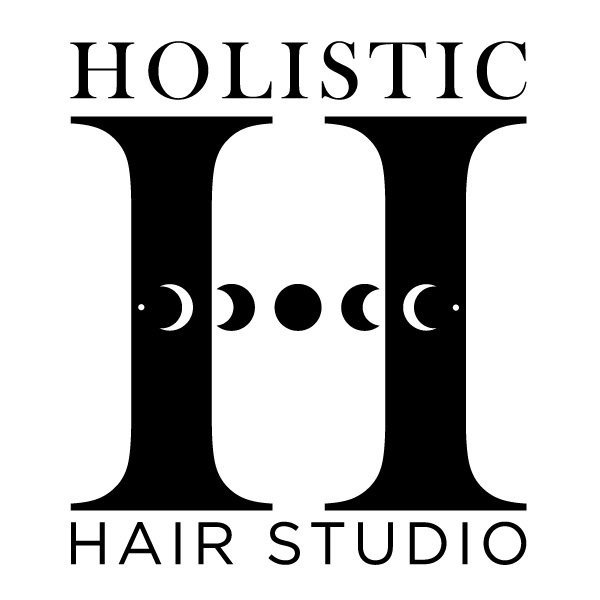Chemical-Free Hair Care: What Really Works And What Doesn't
The beauty industry bombards us with promises of natural and chemical-free hair solutions, but how many actually deliver? With so much conflicting advice, it's easy to waste money on products that either don't work or, ironically, contain hidden synthetic ingredients.
At Holistic Hair Studio, we've tested countless approaches to clean hair care. The truth? Going truly chemical-free requires more than just buying the right shampoo. It's about understanding which ingredients matter, which myths to ignore, and how to care for your hair without compromising its health or your values.
What Chemical-Free Really Means And Why It's Misunderstood
First, let's clarify: all matter is made of chemicals, including water and oxygen. When we say "chemical-free" in hair care, we're really talking about avoiding:
Sulfates (harsh cleansers that strip natural oils)
Silicones (create artificial shine but cause buildup)
Parabens (preservatives linked to hormone disruption)
Synthetic fragrances (common irritants)
The goal isn't to fear all chemicals—it's to choose ones that align with your hair's biology.
What Works in Chemical-Free Hair Care
Cleansing Without Stripping
Works:
Plant-based surfactants (coconut-derived cleansers)
Clay washes (kaolin or rhassoul for gentle detox)
Apple cider vinegar rinses (balances pH, removes buildup)
Doesn't Work:
No-poo methods with baking soda (too alkaline, damages hair over time)
Moisturizing Naturally
Works:
Aloe vera gel (hydrates without heaviness)
Honey masks (humectant that draws in moisture)
Flaxseed gel (defines curls while nourishing)
Doesn't Work:
Pure oils as leave-ins (can repel water, leading to dryness)
Styling Without Synthetics
Works:
Shea butter blends (flexible hold for curls/waves)
Rice water sprays (temporarily strengthens hair)
Doesn't Work:
DIY mayonnaise masks, greasy, smells unpleasant, no proven benefit
The Biggest Myths About Chemical-Free Hair Care
Myth 1: Natural always means better.
Truth: Poison ivy is natural, that doesn't mean it's good for your hair. Some plant extracts like lemon juice can be too acidic or photosensitizing.
Myth 2: You don't need conditioner if you go chemical-free.
Truth: Hair still needs moisture and detangling. Swap silicone-laden conditioners for ones with marshmallow root or slippery elm.
Myth 3: DIY solutions work just as well as store-bought.
Truth: Some do (like flax gel), but most lack preservatives, leading to bacterial growth. Properly formulated products last longer and are safer.
A Realistic Approach to Transitioning
Switching to chemical-free care isn't an overnight fix. Hair may go through an adjustment period, extra oiliness or dryness, as it recalibrates. Tips to ease the process:
Start slow – Replace one product at a time (shampoo first).
Clarify first – Use a malic acid rinse to remove silicone buildup.
Listen to your hair – If a "natural" trend makes your hair feel worse, stop.
The Bottom Line
True chemical-free hair care isn't about perfection, it's about making informed choices. At Holistic Hair Studio, we help clients navigate this shift with customized recommendations based on their hair type, lifestyle, and goals.
Ready to rethink your routine? Explore our blog for more science-backed guides to clean beauty.
Book your appointment today and experience the transformative power of natural organic hair wellness at Holistic Hair Studio!
1433 Powhatan Street, Alexandria, VA 22314
Book your appointment: 703-473-6864
Ready for healthier, more beautiful hair?
Book your organic hair consultation today and experience the difference that natural, sustainable hair care can make.
Book Your Appointment
